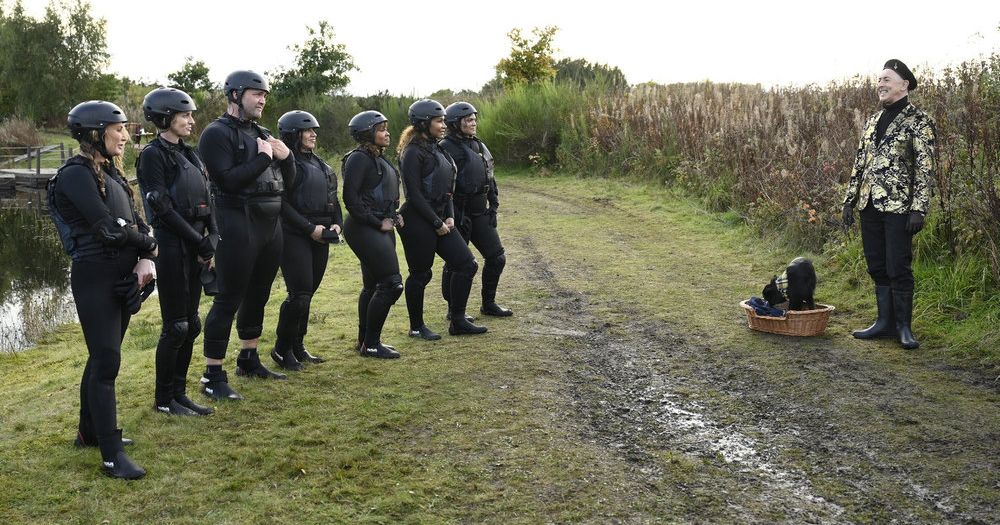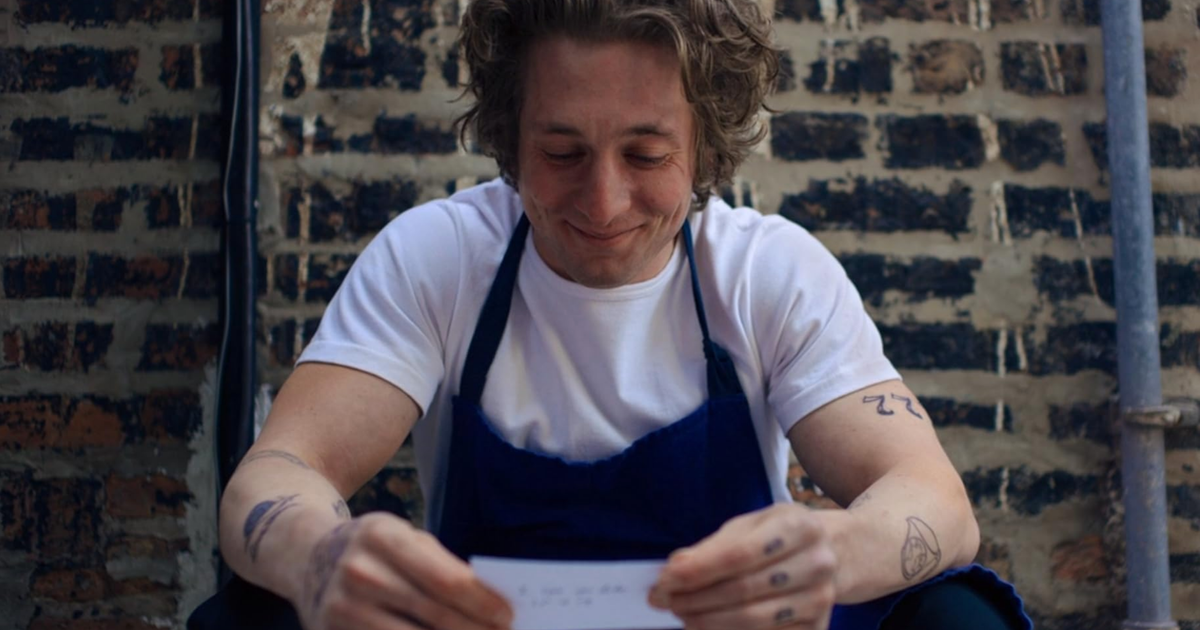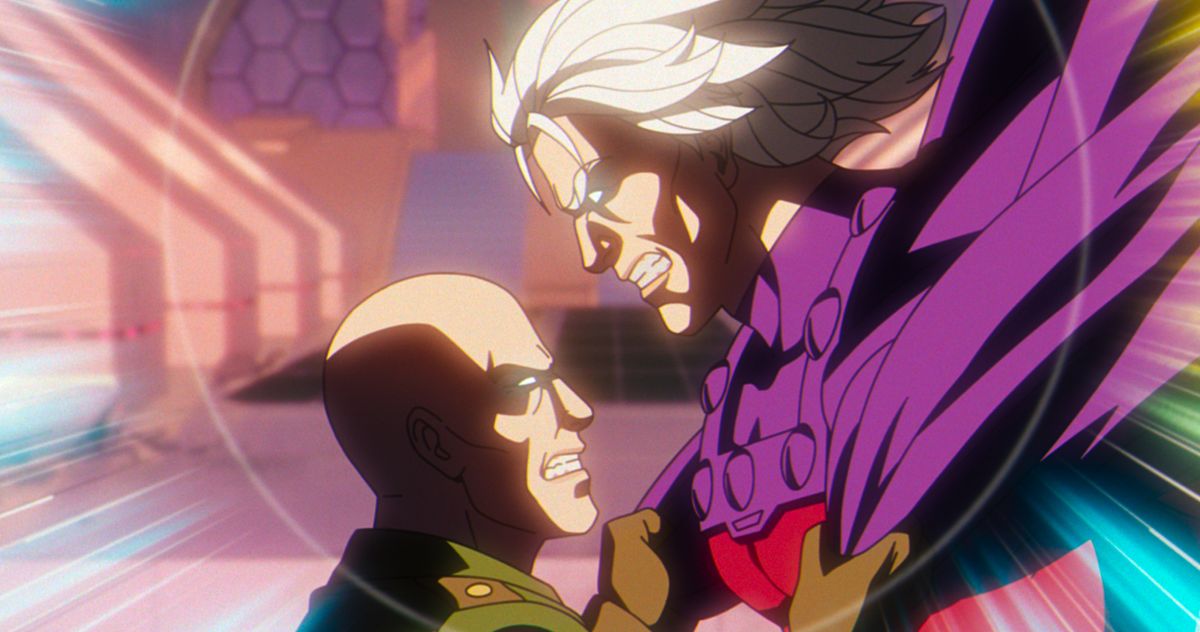Photo: Euan Cherry/Peacock
When it comes to Emmy voters, they like what they like. The shows they picked last year are more often than not the shows they will pick this year. We all groaned at five consecutive years of Modern Family winning Outstanding Comedy and The Handmaid’s Tale raking in a dozen or more nominations long past its prime. But that kind of rut-digging reaches the point of parody when it comes to the reality-TV categories, where Emmy voters have been nominating the same shows for ten, 15, and even 20 years.
This goes all the way back to 2003, when The Amazing Race won the very first Outstanding Reality Competition Emmy. Survivor and American Idol were the more popular shows, but The Amazing Race had a prestige sheen (world travel! Cinematography!), so it wasn’t a huge surprise when it won. What was a surprise was The Amazing Race going on to win the category for the first seven years of its existence, nine of the first ten, and ten in total. This continued long past the point where The Amazing Race was considered one of the premier reality-TV shows; past the early seasons of Project Runway (which has never won) and Top Chef (which won only once, in 2010). After The Amazing Race won all its Emmys, The Voice won three out of four years, followed by RuPaul’s Drag Race winning five out of the last six years.
In the 21 years the Outstanding Reality Competition category has existed, only five shows have ever won, including a surprise victory for Lizzo’s Watch Out for the Big Grrrls in 2022. Moreover, only 17 shows have ever even been nominated. This category covers, per the Emmy rules, “programs that include a competitive element for a prize […] with produced contestant story elements and other reality-style competitive elements.” This excludes “unstructured reality” shows (basically anything on Bravo) as well as game shows like The Floor or “structured reality” shows like Shark Tank, which apparently doesn’t contain sufficient “story elements” to qualify. (Ask me to explain why Chopped is a Reality Competition while Shark Tank is a Structured Reality show, and I will curl up into a ball.) But even though Reality Competition only represents a fraction of the reality shows produced, five winners and 17 nominees in two decades is a shocking number. At least with Outstanding Variety Talk Series, the one where all the late-night shows get nominated, you understand there are only a handful of shows to choose from. Over the same span, there have been 52 shows nominated for Outstanding Drama and 54 nominated for Outstanding Comedy, and even with those categories eventually expanding to more nominees, that is a wild discrepancy.
This kind of rubber-stamping shows up in a lot of the reality categories. Outstanding Host of a Reality Program has only had six winners since that category debuted in 2008 (RuPaul is currently on an eight-year streak). The Outstanding Structured Reality Program Emmy has gone to Netflix’s Queer Eye for the last six years in a row, and has nominated Antiques Road Show for 14 straight years, Shark Tank for 12 straight years, and Diners, Drive-Ins, and Dives in seven of the last ten years. Meanwhile, the Emmys have wholesale ignored entire subgenres of reality; The Bachelor franchise has never been nominated for an Emmy in any of its iterations. The Challenge has been similarly blanked, and its parent series, no less groundbreaking a show as The Real World, was only ever nominated for one Emmy, back in 2000 for Outstanding Picture Editing in a Non-Fiction Program, which it lost to PBS’s American Experience documentary on New York City.
Famously, just last year, Vanderpump Rules became the first show in the Real Housewives universe to receive Emmy nominations, for Outstanding Unstructured Reality Program and Outstanding Editing (Unstructured Reality). This category — which has existed since 2014, when the Outstanding Reality Program category (i.e. everything that wasn’t a competition) was split into Structured and Unstructured — has been a hodgepodge of shows from Discovery (Deadliest Catch), A&E (Intervention and Born This Way), and recently Netflix (Selling Sunset, Cheer, Love on the Spectrum). It’s the one reality category where voters cycle in new nominees (last year it was Vanderpump and the winner, Welcome to Wrexham).
So, what explains this uncommonly rigid voting pattern in Reality Competition? Part of it is that reality shows just keep going. If Game of Thrones had lasted 20 years, the Emmys might still be voting for it. But I’ve always wondered how much industry intransigence has to do with this. In the years after Survivor debuted, there was a pervasive sense of unease in Hollywood, as cheaper-to-make reality shows took up more space on network lineups and left less room for shows with writers and actors. Adding a Reality category to the Emmys felt like capitulation to the Fear Factor–watching hordes. Perhaps block voting for the same five shows every year was a way to keep most reality shows from getting extra shine. Of course, conspiratorial thinking like that requires a kind of coordination that only ever happens when Andrea Riseborough is involved. But at the very least, we can say that Emmy voters haven’t shown much interest in seeking out worthy reality shows beyond a narrow few.
The narrow few that are expected to be nominated this year are the same ones that were nominated last year: RuPaul’s Drag Race, Survivor, The Amazing Race, The Voice, and Top Chef. You could make the case for The Nailed It Baking Challenge, since the original was nominated four times from 2019-2022. But just one year removed from the strikes, it’s hard to imagine voting for a show that canceled a season mid-stream amid union talks from its workers.
There is one possible hope for a category shakeup in the form of Peacock’s The Traitors. The all-reality-stars second season was enough of a cultural flashpoint that Emmy voters might just pay attention. While the show is still tinkering with how to perfect gameplay, the character editing in season two was incredible: the Peter Pals alliance, Parvati shooting inscrutable glances across the room, every single Phaedra interjection. The challenges may not have been any better at influencing game play, but at least they involved slamming coffin lids in eliminated players’ faces and snatching up reality stars in Ewok-style tree nets.
Season one was only nominated for Outstanding Casting for a Reality Program, which it won, indicating that voters are at least aware of and in favor of the show, opening the door to even more nominations this year. The shows The Traitors beat in that category, including Drag Race, Top Chef, and Queer Eye, are all bona fide Emmy favorites; considering how much reality TV success lies in casting, it’s a good bellwether category. And vibes-wise, it does feel like Alan Cumming crashing the Emmys red carpet in a turquoise tartan sash is inevitable. That’s the optimistic view; the pessimistic view is that one low-level award is all voters are willing to give to this show, and Emmy voters seem to have lost their Peacock password, having previously slighted shows like Girls5Eva and Mrs. Davis (and even under-rewarding Poker Face last year).
A Traitors nomination, while welcome, would only change the Reality Competition lineup by 20 percent. For a category that’s become fossilized, that’s not nearly enough, which is why I’m proposing a radical solution: Clear the decks. Bar voters from selecting any show that’s previously been nominated. There are plenty of other reality shows out there, and if the Emmys are supposed to be about the year’s best television, they’re overlooking much of what’s new and good in one of TV’s major genres. If voters have latched onto Drag Race in its celebration of queerness and gender transgression, then honor what’s queer and transgressive in a show like The Boulet Brothers’ Dragula. If the tried-and-true social strategy of Survivor has been worthy year-in and year-out, then The Traitors taking the paranoia of vote-out shows to maniacal new heights is worth supporting. If The Amazing Race is commendable for the production challenges inherent in a race around the world, wouldn’t the nervy innovations of a show like Alone be worth a nomination some time?
If Emmy voters aren’t going to acknowledge the evolution of reality-TV competitions beyond their approved handful, then this is a broken category. But it doesn’t have to be. Realistically, we’re not going to see a complete overhaul of the reality TV categories, short of a rule that caps the number of consecutive years a show can get nominated. But I’m never going to quit hollering about it. And if the Academy wants to take some advice this year, we’ve got some suggestions at the ready.
I’m sorry, is The Amazing Race delivering TV like Tom Hanks’s niece (by marriage! All the weirdness in the Hanks family tree falls under Rita’s branches) throwing an absolute hissyfit in the season premiere because she got eliminated? Is The Voice giving you Franklin (née Frankie) Jonas in sweater after enviable sweater? This has been the most cleverly conceived social-strategy show in many years, complicating classic alliance play with multiple threat levels (you want to get rid of the clever players who can guess your identity, but you might need them for help when you have no idea who the hell Donny Osmond’s kid is) and devising weekly games that allow both the players and the audience to put together clues. This is the best play-along-at-home show since we all decided to vote for Sanjaya that one year on American Idol.
One good thing about the Emmys’ reality-TV stubbornness is that it never fell for the insincere “charms” of The Bachelor. But this spin-off of the show deserves to be the exception, if only for recognizing after two decades that love stories are more interesting among people who have actually lived life.
Nobody thought this show was a good idea, and plenty of people remain chagrined that the original series’ anti-capitalist message got watered down with a spin-off. (Then there were all those reports of shivering, poorly cared-for contestants.) Caveats aside, though, Squid Game: The Challenge improbably edited a game that started with 456 players into a narrative that maintained compelling stakes, characters, and storylines, all while the original series’ sinisterly simplistic games weeded out the competition pitilessly.
There’s room for more sweaty wilderness reality competitions beyond Survivor. The History Channel’s Alone, which continues to be the most genuinely perilous show on television, has been dropping survivalists in remote locations to forage, hunt, build shelters, starve, and outlast each other for almost a decade — and it’s only gotten better over time. Alone enters its eleventh season this summer, but the show’s grand innovations and contributions to the reality genre have been present from the very beginning: a storytelling framework that relies on competitors documenting themselves, a robust production infrastructure, and total commitment to the hardcore nature of its premise. Very few things in reality television are as unique as Alone; even fewer achieve its real highs.
The reality-competition category has included shows that involve singing, dancing, cooking, and designing clothes. But not once has the Emmys recognized a program where people make shit out of glass. The time has come to change that with Blown Away, the only glass-blowing reality competition and also the only show that features terms like annealer and gloryhole on a regular basis. The artists on this series sweat — truly, literally — through every challenge, melting and manipulating glass until it looks like bubble gum, then molding it into magnificent sculptures. (Or watch it shatter in their grasp, an event that never gets less nerve-wracking despite the dozens of times it happens.) Blown Away is about the fragility and delicacy of creating art in a fast-paced, industrial environment that seems designed to break it before it can even be seen. Sounds pretty timely to me.
The human body is capable of astonishing things, of effort and physicality and strength that is nearly incomprehensible. Such is the experience of watching Netflix’s Physical: 100, a South Korean reality competition that pits 100 extremely fit people against each other in a series of grueling individual and team challenges to determine whose body is the best. This premise seems a lot simpler than it is: As people of all kinds of backgrounds converge — professional athletes, military veterans, models, MMA fighters, firefighters — many competitors assume they’ll dominate based on how ripped they are or how sturdy or tall, and those expectations trickle down to viewers, too. Surely the most muscular will rise about the rest, given that so many cultures prize ab count over other aspects of fitness. But part of the delight of watching Physical: 100 is how often that assumption is undercut by the contestants’ varying degrees of success regardless of body type. Those subversions make the viewer wonder what, exactly, winning takes. Is it a particular kind of athletic ability? Willpower or determination or stubbornness? Physical: 100 is set up to make us obsess over finding that X-factor, and the cliffhanger-heavy episodic structure and clever editing amp up the drama. It’s a unique format that upends so much of what we’ve come to expect from physical-competition shows, and it deserves recognition for that.
Jen Chaney, Roxana Hadadi, and Nicholas Quah contributed submissions.















